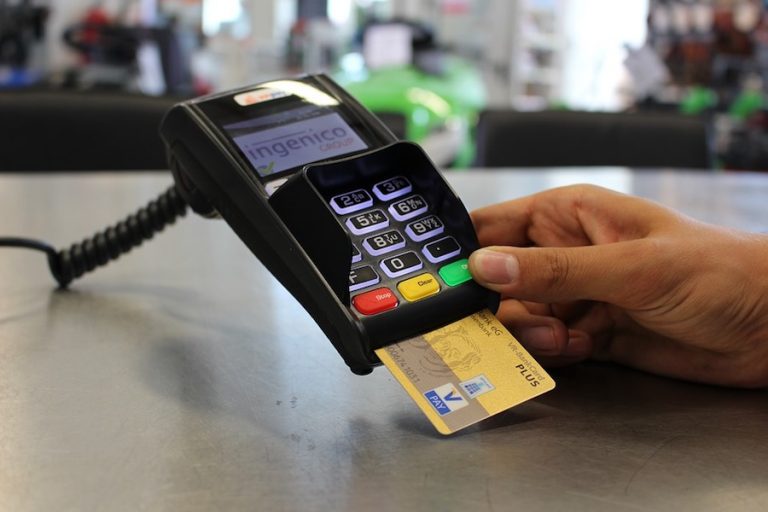Credit Card or Travel Card: Which Should You Use Overseas?
Which type of credit card is cheaper to use for overseas transactions? We answer this question by comparing the fees of the most popular credit cards and travel credit cards and share our thoughts on which card is better to use on your travels.
When traveling overseas a credit card is a handy back-up option in case of emergencies or unforeseen circumstances. Unfortunately, it can also be very easy to rack up credit card fees on international transactions.
What will this article cover?
- Pros and Cons
- Credit Card: Fees and Charges
- Travel Credit Card: Fees and Charges
- Rewards and benefits for each card
- So which one is best?
- Who can apply?
- Security

Pros and Cons: Credit Cards
- Favourable annual fees
- Affordable minimum credits
- Free additional cardholders
- Travel insurance offered with premium versions of credit cards offered
- No reward schemes with credit cards
- No travel insurance with standard low rate credit cards
- Higher fees charged for premium credit card
- Australian permanent resident requirement for some credit cards
Pros and Cons: Travel Credit Cards
- Attractive reward schemes available through travel credit cards
- Low or zero international transaction fees
- Complimentary travel and/or medical insurance offered with a lot of cards
- Frequent flyer points to help you get discounted or free flights
- High minimum credit for travel credit cards
- High annual fees
- Usually an extra cost for additional card holders
- High minimum monthly salary requirement
- For some travel credit cards you have to be a permanent Australian resident
Credit Card: Fees and Charges

Credit cards can help make advance purchases that your debit card can't quite stretch to. However, they also have a lot more fees than debit cards.
There are 7 main fees and charges involved with credit cards:
- Purchase Interest Rate
- Annual Fee
- Balance Transfer Interest Rate
- Cash Advance Interest rate and cash advance fee
- Late payment fee
- International Transaction fee
- Emergency fee: Lost or stolen and needs replacement
We’ve put together a table below outlining the main fees for 5 of the most popular credit cards out there.
| Credit Cards | Purchase Rate | Annual Fee | Balance Transfer Rate | Cash Advance Fee & Rate | Late payment fee | International Transaction fee | Emergency funds fee |
|---|---|---|---|---|---|---|---|
| CommBank Low Rate Credit Card* | 9.9% p.a. (up to 55 days interest free) | $59 | N/A | 9.9% p.a (all cash advances are blocked, exceptions apply) | $20 | >3% | $20 |
| ANZ Low Rate Credit Card* | 12.49% p.a (up to 55 days interest free) 0% for first 15 months for new customer21.74% p.a. | $58 | 21.74% p.a. | 2% of the transaction amount; Min $4.00 at overseas ATMs; 21.74%p.a. | $20 | 3% | Free |
| Westpac Low Rate Credit Card* | 0% for first 26 months; | $59 Free for first year | 0% for first 26 months; | $2.50 or 2% of transaction amount; | $15 late payment fee | 3% | Free ($40 charge for a courier if overseas) |
| NAB Low Rate Credit Card* | 0% for first 9 months; 13.99% p.a (up to 55 days interest free) | $59 | 0% for first 6 months (1% BT rate applies) then reverts to cash advance rate | $2.50 or 2% of transaction amount; 21.74% p.a. | $9 late payment fee | 3% | Free |
| Citibank** Simplicity card | Enjoy up to $50 cash back in first 90 days of approval; 19.99%(up to 55 days interest free) | No Fee | 0% for 15 months (1.5% BT rate) then reverts to 19.99% | $5 cash advance fee overseas for withdrawals; 19.99% p.a | No Fee | 3.4% | Free |
All figures were collected August 2018. Please be aware that some of these figures may reflect promotional offers by the bank at that time.
*CommBank, NAB, Westpac and ANZ each have premium versions of their Low Rate credit cards which, although slightly higher fees, have complimentary travel and/or medical insurance.
**Citibank offer standard complimentary purchase cover insurance and transit accident insurance. Other Citibank credit cards offer complimentary travel and/or medical insurance.
Travel Credit Card: Fees and Charges
Although a lot like credit cards, travel credit cards often come with higher fees simply because they come with very attractive travel reward schemes in return.
We’ve put together a table below showing you the main fees and charges involved.
| Travel Credit Cards | Purchase rate | Annual fee | Balance transfer rate | Cash advance fee & rate | Late payment fee | International transaction fee | Additional cardholder fee |
|---|---|---|---|---|---|---|---|
| ANZ Rewards Travel Adventures Card | 20.24% p.a. (up to 55 days free interest) | $225 ($170 annual account + $55 annual rewards fee) | 21.74% p.a. | 2% cash advance fee will be charged unless as a withdrawal from an ATM operator or branch overseas**; 21.74% p.a. | $20 | Nil* | $10 per cardholder + annual rewards fee of $55 per cardholder |
| Virgin Money Velocity High Flyer card | 20.74% p.a. (up to 44 days) | $289 | 0% for 15 months, then 20.99% | 2.7% of transaction amount (domestic) $5 per withdrawal (overseas) | $10 then $10 per week until paid | 3.3% | $89 p.a. |
| 28 Degrees by Latitude | 21.99% p.a. (up to 55 days) | No Fee | 21.99% p.a. | 3% or $4 (whichever is greater); 21.99% p.a. | $20 | Nil | Nil |
| American Express Qantas Discovery | 20.74% p.a (up to 44 days interest free) | No Fee | 0% for first 12 months with 1% balance transfer fee | .$2.50 or 2% (whichever is greater); Interest on cash advances are not offered. | $30 | 3% | Nil |
| American Express Explorer Credit Card | 20.74% p.a (up to 55 days interest free) | $395 p.a. | 0% for first 12 months with 1% balance transfer fee | $2.50 or 2% (whichever is greater); Not offered | $30 | 3% | Nil |
All figures were collected in August 2018
*ANZ will also waive the cash advance fee if you use your ANZ Rewards Travel Adventures account to withdraw actual cash from a branch or ATM located overseas. A cash advance fee will apply to any other cash advances on your account.
**ATM operators will often charge their own fees though, so be aware.
What are the rewards and benefits for the most popular credit cards and travel cards?
Credit and travel credit cards tend to have higher fees than debit cards, but also offer attractive reward schemes for spending the extra money. Sometimes the amount of money you pay for the credit card is totally worth what you get back.
For example, with the American Express Explorer Travel Credit card you spend $395 in annual fees, but you receive up to $400 worth in travel-related rewards. In any situation, make sure you're happy with the level of rewards you get for your outgoings, before you commit to a credit card.
We’ve put together a table below summarising the rewards for the cards mentioned in this article. This should give you some idea of what you will get, but we suggest doing your own research before applying.
| Credit Cards | Rewards | Travel Credit Cards | Rewards |
|---|---|---|---|
| ANZ Low Rate Credit Card | Complimentary travel insurance on Platinum version of this card | ANZ Rewards Travel Adventures Card | 1.5 points per $1 spent on eligible purchases; 0.5 points per $1 spent on eligible purchases up to $2,000 40,000 bonus Velocity frequent flyer points, complementary domestic return flight 2 single entry domestic lounge passes when you spend $500 in first 3 months with Virgin Australia each year until the card is cancelled Complementary travel and medical insurance |
| Commonwealth Low Rate Credit card | Complimentary travel insurance for first 3 months of Gold version of Commonwealth Low Rate Credit card | ANZ Rewards Travel Adventures Card | 30,000 rewards when you spend $3000 per month 1 point per $1 spent on eligible purchases Complimentary travel insurance when you pay for flights with Virgin credit card Complimentary $129 Virgin flight voucher offered annually 2 complimentary single entry virgin Australia domestic lounge passes |
| Westpac Low Rate Credit card | Emergency travel assistance | 28 Degrees by Latitude | 24/7 complimentary concierge service Shoppers benefit and repayments benefit cover |
| NAB Low Rate Credit card | Complimentary travel insurance on Platinum version of this card when used to make travel reservations | AMEX Qantas Discovery | 5,000 bonus Qantas Points when you spend $750 on eligible purchases within your first 3 months of card approval 2,500 bonus Qantas Points after your first card spend on selected Qantas products and services in Australia |
| Citibank Simplicity card | 5% cash back on all retail purchases (up to $1000 spend) within first 90 days Purchase cover insurance Citibank Dining Program | AMEX Explorer Credit Card | 50,000 reward points given when you spend $1500 in first 3 months 2 points per $1 spent on eligible purchases $400 travel voucher awarded to additional cardholders |
So which type of card should you use on overseas transactions?
Generally, you should only apply for a credit or travel credit card if you are confident you can pay back your loan. You need to be able to meet your monthly salary requirements and minimum repayments, otherwise you'll be hit by hefty interest rates.
If you're looking for a credit card to fund your travels, then we recommend a credit card like the ANZ Low Rate Credit card, as they have lower fees attached.
However, if you earn enough to afford the higher requirements for a travel credit card, such as the 28 Degrees card or other frequent flyer cards, then you can reap the benefits from rewards schemes, concierge services and travel insurance offered exclusively by these cards.
Taking into account total fees, pros and cons, reward and interest rates, we have put together a list of each card from cheapest to most expensive.
Credit Cards
- Westpac Low Rate Credit Card
- Citibank Simplicity Card
- ANZ Low Rate Credit Card
- NAB Low Rate Credit Card
- Commonwealth Low Rate Credit Card
Travel Credit Cards
- American Express Qantas Discovery Card
- 28 Degrees Credit Card
- ANZ Rewards Travel Adventures Card
- American Express Explorer Credit Card
- Virgin Velocity High Flyer Credit Card
Whatever your reason for applying for a credit or travel credit card, there is plenty of information online so we suggest doing your own research first before applying to make sure you get the right card for you.
Who can apply?
For all credit cards and travel credit cards, you will have to have a good credit score so the bank or provider can trust that you will repay the money they loan.
For some, you will have to earn over a certain amount e.g. ANZ Rewards Travel Adventures card requires a minimum annual salary of $35,000 p.a., and Virgin Money Velocity High Flyer card requires a minimum of $75,000 p.a.
It is best to do your research beforehand. Some of the requirements might include: age, residency, minimum income, and credit history. At the very least, you'll need your personal details, ID and proof of income to apply.
Security
All banks and credit card providers have high security measures. Some offer more protection than others, but in most cases, credit cards and travel credit cards will offer:
- Refund protection
- Purchase protection
- Online Fraud Protection
- Emergency card replacement
- Global Card Support